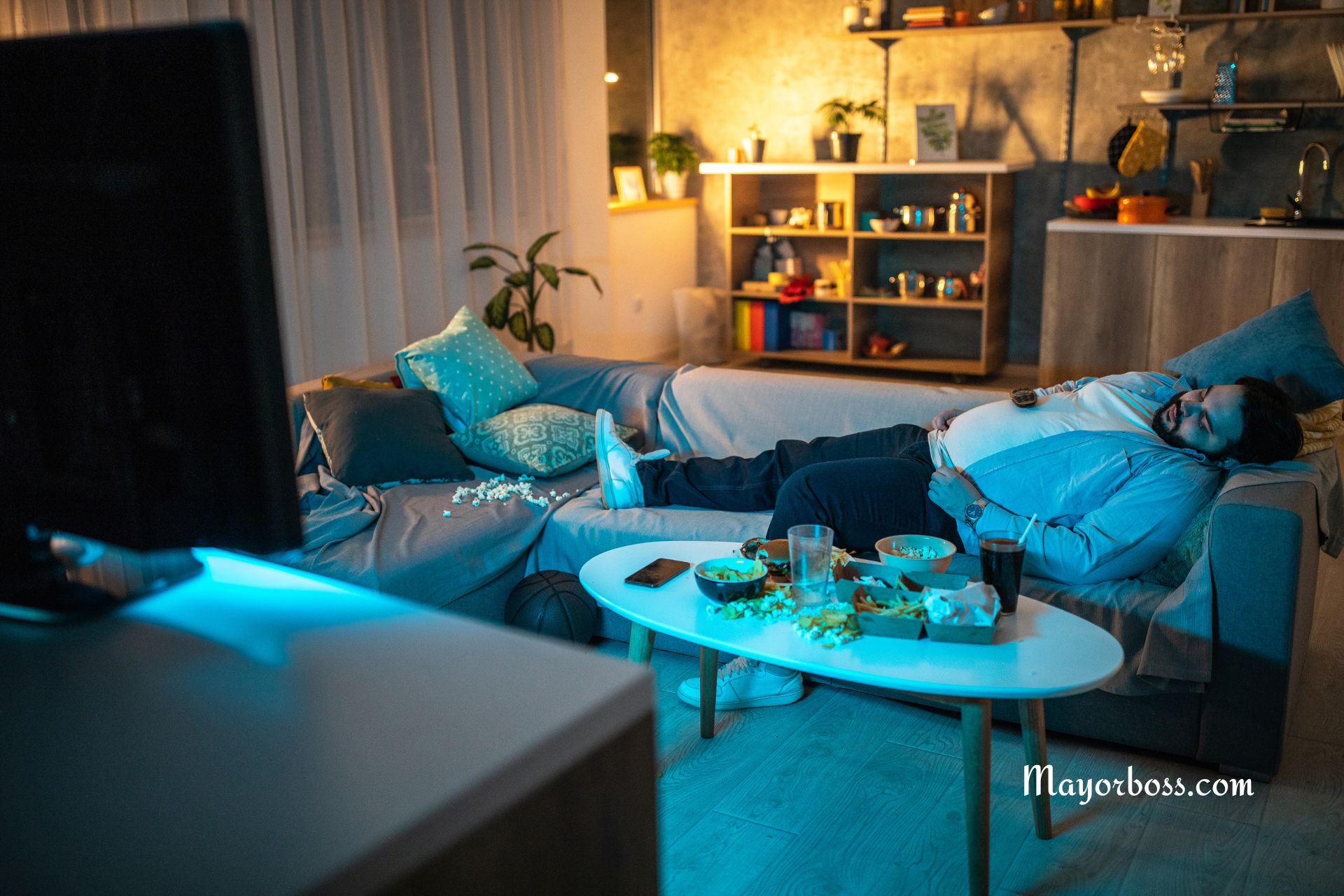Sleeping With the TV On: What It Does to Your Body (and How to Stop)
Do you fall asleep with the TV on? If so, you’re not alone. Many people find comfort in the background noise or the dim light as they drift off to sleep. However, this seemingly harmless habit might be affecting your sleep quality and overall health more than you think. In this article, we’ll uncover what sleeping with the TV on does to your body and offer practical tips on how to break the habit.

How Does Sleeping with the TV On Affect Your Sleep?
Sleeping with the TV on can significantly disrupt your sleep quality. Here’s why:
Light Disruption
TVs emit blue light, which can interfere with your body’s production of melatonin, the hormone responsible for regulating sleep. This disruption can make it harder for you to fall asleep and can lead to a decrease in REM sleep, the restorative phase of your sleep cycle.
Sound Disturbance
Although some people believe background noise helps them sleep, the varying volumes and sudden changes in sound from a TV can actually keep you in a lighter state of sleep. This means you might wake up feeling less rested, even if you’ve been asleep for a full eight hours.
Sleep Cycle Interruption
Your body follows a natural sleep cycle, moving through different stages of sleep throughout the night. Exposure to light and sound from a TV can interrupt this cycle, leading to sleep fragmentation and decreased sleep quality.
The Long-Term Health Effects
Continuously sleeping with the TV on can lead to more than just next-day tiredness. Over time, it can have several adverse effects on your health:
Increased Risk of Obesity
Poor sleep quality has been correlated to weight gain and an increased risk of obesity. Lack of sleep can affect the hormones that regulate hunger, leading you to eat more or make unhealthy food choices.
Higher Likelihood of Developing Chronic Conditions
Chronic sleep disruption can contribute to long-term health issues such as heart disease, diabetes, and high blood pressure. This is due to the stress it places on your body over time.
Mental Health Impact
There’s also a connection between poor sleep and mental health issues, such as anxiety and depression. Consistently low-quality sleep can affect your mood, cognitive function, and overall mental well-being.
How to Stop Sleeping With the TV On
Breaking the habit of sleeping with the TV on might seem daunting, but with a few changes to your bedtime routine, it’s entirely possible. Here are some tips to help you get started:
Establish a Relaxing Bedtime Routine
Develop a bedtime routine that promotes relaxation without the need for a TV. This might include reading, meditating, or listening to calming music. Over time, these activities can signal to your body that it’s time to sleep.
Create a Comfortable Sleep Atmosphere
It is recommended to create a relaxing environment in your bedroom by maintaining a cool temperature, keeping the room dark, and minimizing noise. Consider using blackout curtains to block light and a white noise machine to drown out disruptive sounds.
Limit Screen Time Before Bed
Try to limit exposure to screens, including TVs, smartphones, and tablets, at least an hour before bed. This can help decrease blue light exposure and prepare your body for sleep.
If You Need Background Noise, Choose Wisely
If silence makes it hard for you to fall asleep, opt for consistent, soothing sounds instead of the TV. Apps that offer white noise or nature sounds can be a good alternative.
Frequently Asked Questions
1. Can wearing a sleep mask help if I can’t turn the TV off?
Yes, a sleep mask can block out the light from the TV, but it won’t protect you from sound disturbances. It’s a temporary solution, but addressing the root of the habit is more beneficial in the long run.
2. Are there any health benefits to sleeping with the TV on?
While some people find the background noise comforting, the cons of sleeping with the TV on generally outweigh any perceived benefits when it comes to health and sleep quality.
3. How long does it take to adjust to sleeping without the TV on?
This varies from person to person. Some might adjust in a few days, while others might take weeks. Stay consistent with your efforts, and your body will gradually adapt to the change.
